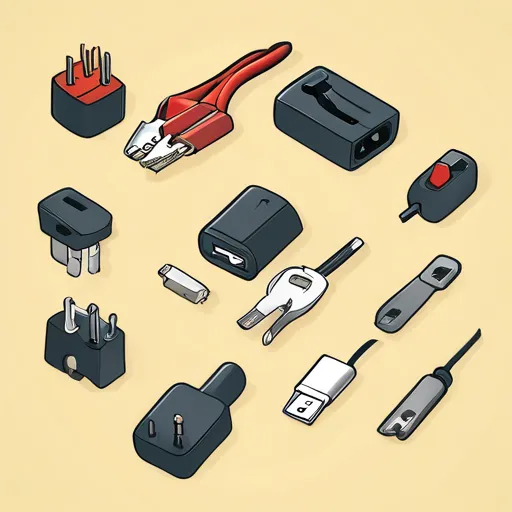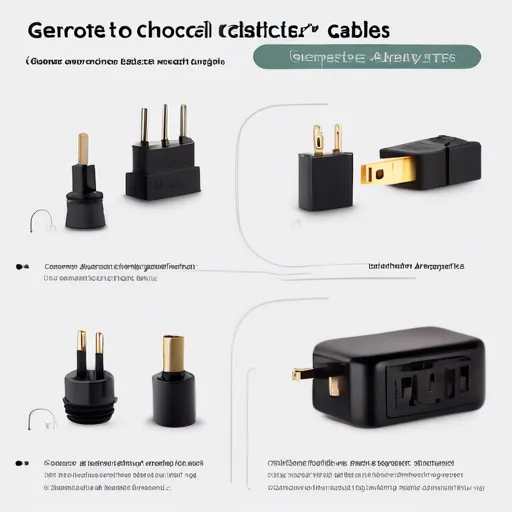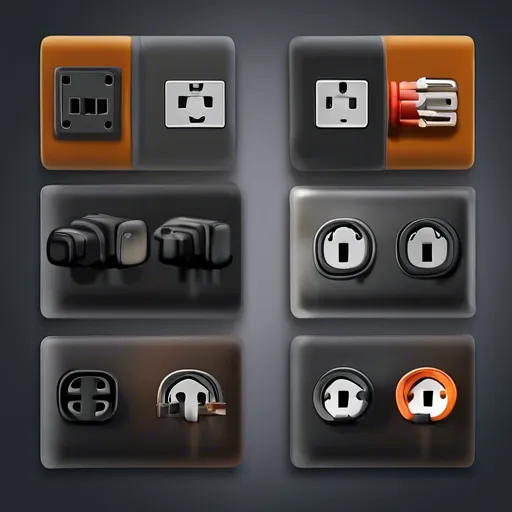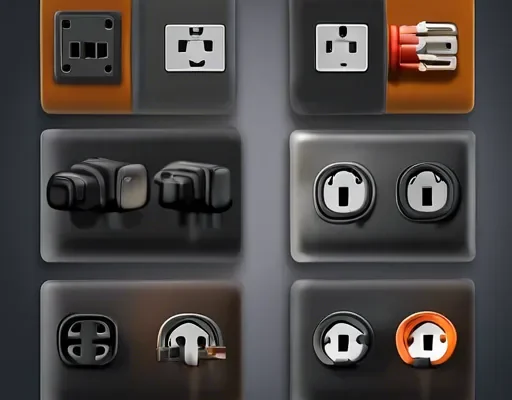Choosing the right adapter for electrical cables might seem as bewildering as interpreting modern art. Yet, much like the masterpiece that hangs in the Louvre, the right choice can profoundly enhance functionality and aesthetics. In today’s ever-connected world, adapters play a crucial role in ensuring seamless energy flow. But how do you make sure you’re picking the right one for your needs?
Here’s a simple guide to help you navigate through the intricacies of electrical adapters. Whether you’re retrofitting your home with the latest tech or you just want to make sure all your gadgets are juiced up safely, understanding what makes an adapter tick is imperative.

Key Features and First Impressions
- Compatibility: Ensure the adapter fits not only the plug type but also voltage and power requirements.
- Safety: Look for safety certifications such as CE or UL, indicating thorough testing.
- Durability: Choose one with robust construction to endure frequent use and the occasional yank.
- Design: Sleek designs might be more appealing in a modern setting but never compromise function for form.
These features help set your baseline expectations. First impressions stem from the packaging, which often hints at the manufacturer’s attention to detail.

Technical Details
Design
The most staggering aspect of any adapter’s design lies in its minimalistic ethos. A compact design made with high-grade materials ensures both portability and durability. Pay attention to the layout of the plugs and sockets—they should be intuitive, not a mathematical puzzle.
Performance
An adapter’s grunt work is defined by its performance. It should convert and deliver the required voltage without faltering. Modern versions offer features like surge protection and dual ports, enabling multitasking without a hitch. Evaluating performance is akin to examining the blueprints of a gazebo designed to withstand rain and wind.
Usability
A good adapter is user-friendly, easily connecting to a multitude of systems without requiring a manual. Look for adapters that are easy to plug in and unplug, a crucial consideration when trying to neatly integrate with other living room elements like a kitchen with a bar counter.

Side-by-Side Comparison
| Aspect | Option A | Option B |
|---|---|---|
| Durability | High-grade polycarbonate | Standard plastic |
| Ease of Use | Plug and play | Requires manual setup |
| Design | Sleek and modern | Conventional |
| Operating Costs | Energy-efficient | Higher energy consumption |
Practical Tips
- Always check voltage requirements before purchasing.
- Opt for adapters with built-in surge protection.
- Read reviews to confirm real-world performance.
- Keep spare adapters for an emergency backup.
Did you know? A solid 95% of electrical failures trace back to adapter misuse or incorrect installation. Choosing the right adapter could save a world of trouble.

In conclusion, selecting the right adapter is not just about convenience. It’s about ensuring safety and efficiency, without which the dream of a perfectly synched home fritters away. The best choice often requires comparing various options, much like choosing the perfect design elements for a combined kitchen and living room.
As the future heads toward a more interconnected home environment, the challenge remains to keep those connections smooth and unhindered. A thoughtfully chosen adapter stands as your silent sentinel, safeguarding your devices and the life they breathe into your home. So, as you ponder over your choices, remember it’s not just an adapter—it’s your link to a vibrant electronic oasis.
“`html
FAQ
What should I consider when choosing an adapter?
Consider the voltage requirements and plug compatibility for safe operation.
Why is safe operation important when using adapters?
Safe operation prevents electrical hazards and protects your devices from damage.
How do I ensure adapter compatibility?
Match the adapter’s specifications with your device’s power requirements.
Can using the wrong adapter be dangerous?
Yes, using an incompatible adapter can lead to overheating or short circuits.
“`
